Association Leadership Spotlight: Terry Tully, Irish Pipe Band Association – Part 2
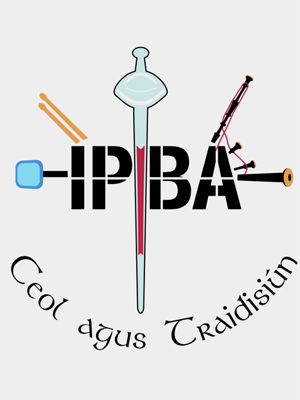 In Part 1 of our conversation with Irish Pipe Band Association President Terry Tully, he discussed his goals and aspirations for the group.
In Part 1 of our conversation with Irish Pipe Band Association President Terry Tully, he discussed his goals and aspirations for the group.
In Part 2, we get into more potential long-range opportunities for the IPBA, the idea of amalgamating associations in the North and South of Ireland, and misperceptions about Irish pipers and pipe bands.
What do you think? As always, readers/viewers are welcome to comment using the Comments feature below or with the video on YouTube.
Here’s a transcription of Part 2 of our discussion, with minor editing for clarity.
Part 2
pipes|drums: We talked in Part 1 about the structure and objectives of the Irish Pipe Band Association. Would a single Irish / Northern Irish Pipe Band Association ever make sense?
Terry Tully: Oh, I think we’re a long way off that! I always remember my father back in the early ’80s, maybe the late ’70s/early ’80s, at an AGM of the Irish Pipe Band Association, where we had a representative from the RSPBA’s Northern Ireland branch who made a speech.
And my father stood up in the crowd, and said at the top of his voice that he looked forward to the day when the RSPBA Northern Ireland branch would become part of the Irish Pipe Band Association, to rapturous applause. That was many years ago, and nothing has ever happened since. And I don’t think it ever will, to be quite honest with him, but it would make a lot of sense.
“I have actually made the suggestion that Northern Ireland should have their own association. They can be affiliated in the same ways as we are. I think it would put them in a much stronger position to have their own association up there in Northern Ireland. What would be wrong with that?”
Recently, I’ve been in conversation with a few different people from Northern Ireland, and I have actually made the suggestion that Northern Ireland should have their own association. They can be affiliated in the same ways as we are. Bands from Canada and America and all over the world are affiliated with the RSPBA, but I think it would put them in a much stronger position to have their own association up there in Northern Ireland.
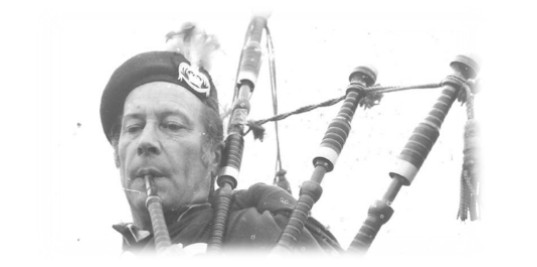
What would be wrong with that? It would put them in a position where they could make their own rules, and not be be governed by the RSPBA. I think it would be much better for the bands and much stronger for the bands if they were in a position to be able to do that. But it’s only an idea that I have floated recently with a couple of people, and there were quite a few snickers when I mentioned it, but yet they may go away and think about that.
It could be a very good solution for them, and it would make it a lot easier for us in the south of Ireland, and there would be better communication between us and Northern Ireland.
I think the Northern Ireland branch of the RSPBA would be in a much better position if they separated. I know I could get into a lot of trouble for saying this, but I can only say what I think is right. I think they would be far better off creating their own Pipe Band Association in Northern Ireland.

pipes|drums: That’s an interesting premise – interesting that you put that out there. Northern Ireland is extremely strong in terms of competitive interest and pipe band culture. Maybe that makes sense.
You’re, of course, a World Championship-winning pipe-major with St. Laurence O’Toole, and a very successful solo competitor. How important is it to bring that lived competition experience to the leadership of an association?
Terry Tully: As I said earlier, our association has in the past, always been, maybe not much by the president, but always been led by pipers who are still very competitive today. We still have that. The secretary of the association, Johnny sheen, is a piper with his own band, and Brian McMahon is the chairman of the association, a pipe-major of his own band. So maybe it’s probably better for the association than it ever would be for me. I don’t ever see how me being the pipe-major of a Grade 1 band that has won the World’s would benefit my role as a president in our association. Other people may feel that, but I don’t. I’m there to do a job. I took it on, and when I was asked to take it on, or people ask me why did I take it on, my answer to them was basically that I wanted to try to improve things for the bands that are competing – not that there has been anything wrong with how things have been run, but I think there is always room for improvement. I think we’ve made inroads in that over the last year-and-a-half with competitions that we’ve been we’ve been running. The All Ireland Pipe Band Championships last year, which took place in Dublin, was very successful, and our local competitions here are quite successful as well.
“I know what’s good for the bands. I know what they like. I know what they don’t like. It’s better coming from somebody like me than people who wouldn’t be that used to standing in ghillie brogues and a heavy kilt on the day.”
The only thing that we really need is to get more bands to them. That’s a huge objective at the moment for me and for everybody else who’s working in the association.
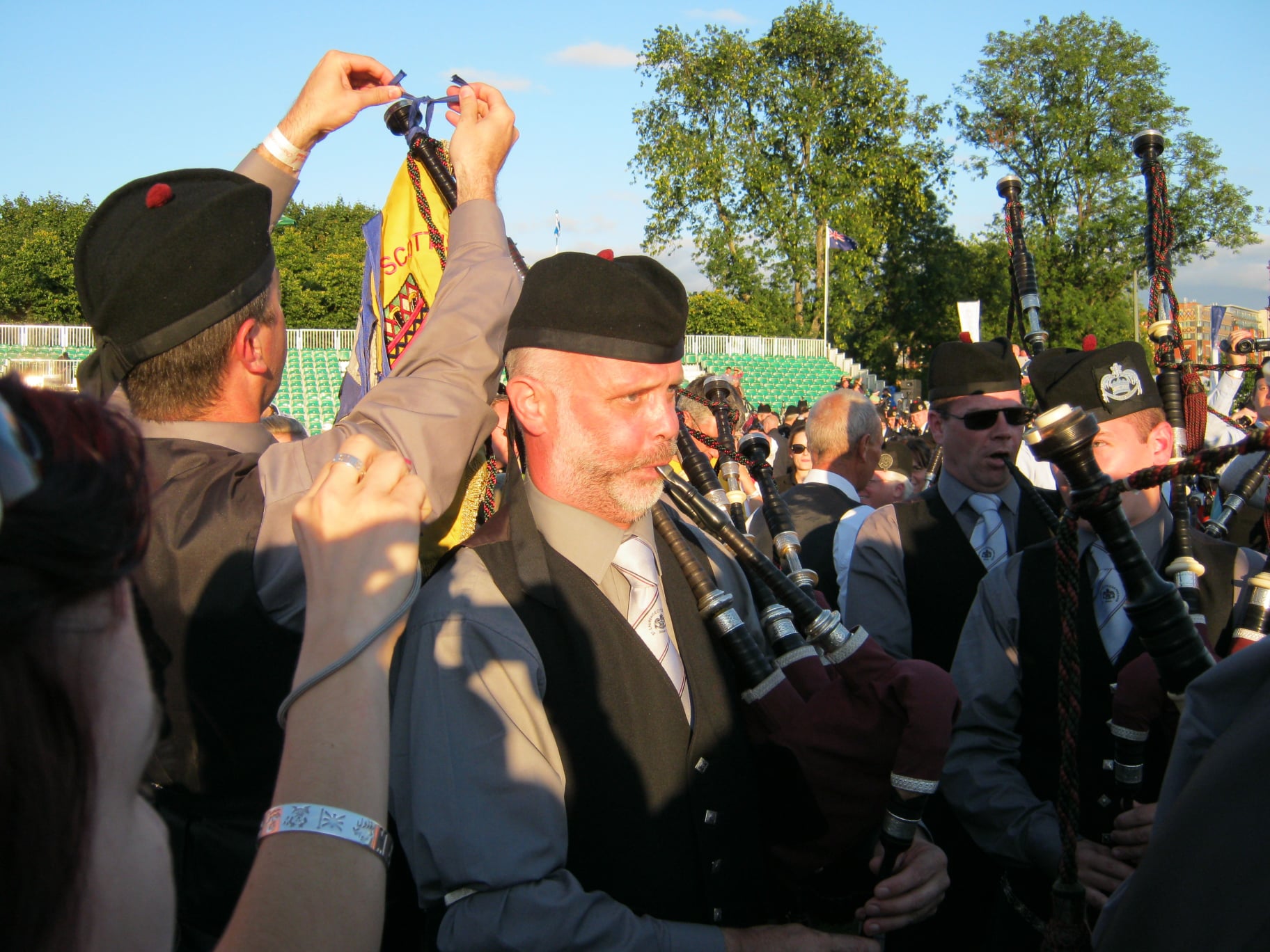
Maybe other people might look at it as important that I’m bringing a lived experience to it. I know what’s good for the bands. I know what they like. I know what they don’t like. It’s better coming from somebody like me than people who wouldn’t be that used to standing in ghillie brogues and a heavy kilt on the day be able to say to them, “No, I don’t think that’s a good idea. I don’t think we should be doing that. I think we should be thinking more about what the bands want here and I know what we want.”
The spectacle on the day is the pipe bands. We don’t need another spectacle. I’ve been in situations recently, and I’ve managed to get my own way for the good of the bands, as far as I’m concerned. That’s my plan for the future.
“I think Irish pipe bands are equally as good at clinical precision as any of the bands they’re playing against in their grade.”
pipes|drums: We talked about how Scottish pipe bands fit into the musical culture of Ireland. Are there any misperceptions about Highland piping and Scottish pipe bands in Ireland that you’d like to correct?
Terry Tully: Misconceptions . . . Okay, well, there was only one that I heard recently, and it was a suggestion that Irish pipe bands put music and creativity ahead of clinical precision. That’s not something that I would agree with. I think Irish pipe bands are equally as good at clinical precision as any of the bands they’re playing against in their grade.
Maybe the one thing that may sound different to an outsider is the style of music might be slightly different, even though they may be prescribed tunes, but they may be played in a slightly different way, and that kind of comes from the culture of this country, with the kind of music that we that we play here all the time, and that kind of filters back into our own piping and pipe bands.
I don’t think it’s any different clinically. I think it’s the same as everybody else. It’s not a perception that I would agree with. For me, the most important elements of performance is a strong melody. And then if you couple that with creativity and a good clinical performance, it’s as much as anybody can expect from a good performance.
pipes|drums: That’s well said. You’ve made a good point.
Terry Tully : You’ve got to take that into account as well. As I said earlier, of all of the bands that we have registered in our association, there is only one Grade 1 band and one Grade 2 band. At the moment, we don’t have a competing Grade 3 band; all of our other bands are in Grade 4, and as we call it here, Grade 5, which is the same as Grade 4A and Grade 4B. There are limitations, and ability levels exist that are the same as in any other band, whether in Northern Ireland or Scotland. You just have to make the most of what you have.
pipes|drums: Anything more to add about the IPBA?
Terry Tully: I’ve only been involved in the association a very short while, and one of the points that I’ve been making to people who have a tendency to be very critical of those who are trying to do their best, people who are trying to put on competitions and workshops and stuff like that, generally. There’s always somebody out there who will criticize what you’re doing.
For many, many years, I was probably one of those people, and that’s the point that I’ve been making to many people now, because everybody has suggestions to make. I feel that my job and the role that I am in is to listen to all of those suggestions. As I said, I want to do what the pipe bands want. I am there for the pipe bands, and the association needs to think that way as well. I’m not suggesting that they don’t; I know they do. We’ve got volunteers who are involved in their association. It can be tough when you do something and people still don’t like what you’re doing, or don’t agree with what you’re doing, or think that you could be doing it better. I know there’s always room for improvement, and that’s what our association is all about.
pipes|drums: Well, that’s great food for thought, Terry. We really appreciate you taking the time to speak with pipes|drums’ viewers and readers about the Irish Pipe Band Association, and wish you nothing but success. For the future, we’ll be watching closely.
Terry Tully: Thanks very much.
Again, thanks to Terry Tully for sharing his thoughts and experiences as Irish Pipe Band Association president.
Stay tuned to pipes|drums for the next installment in our ongoing Association Leadership Spotlight series.




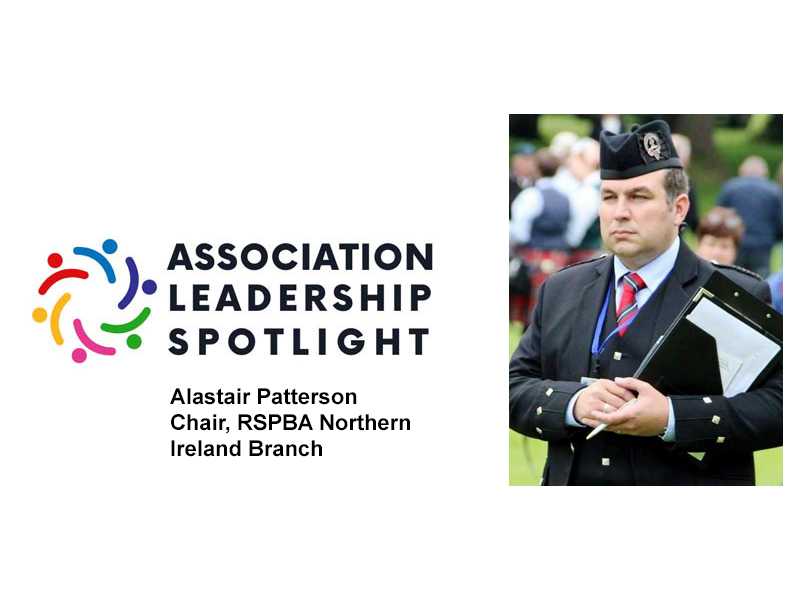

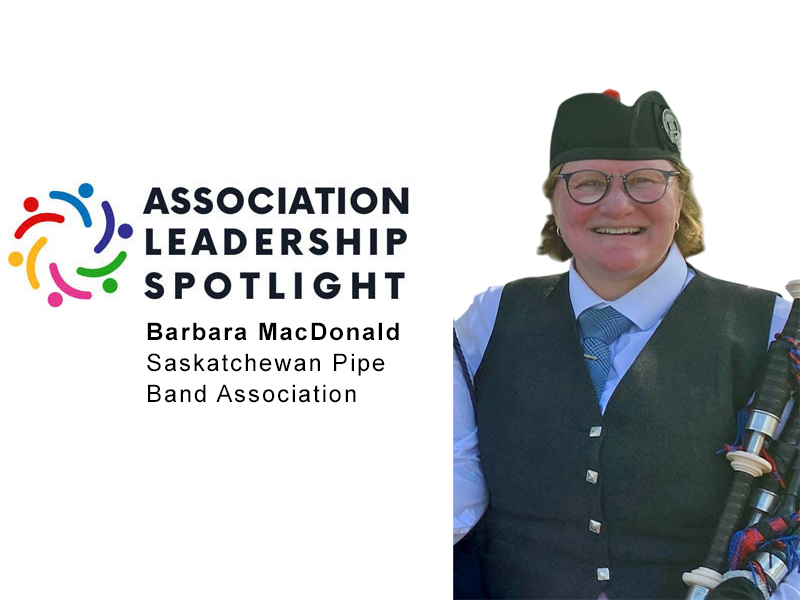


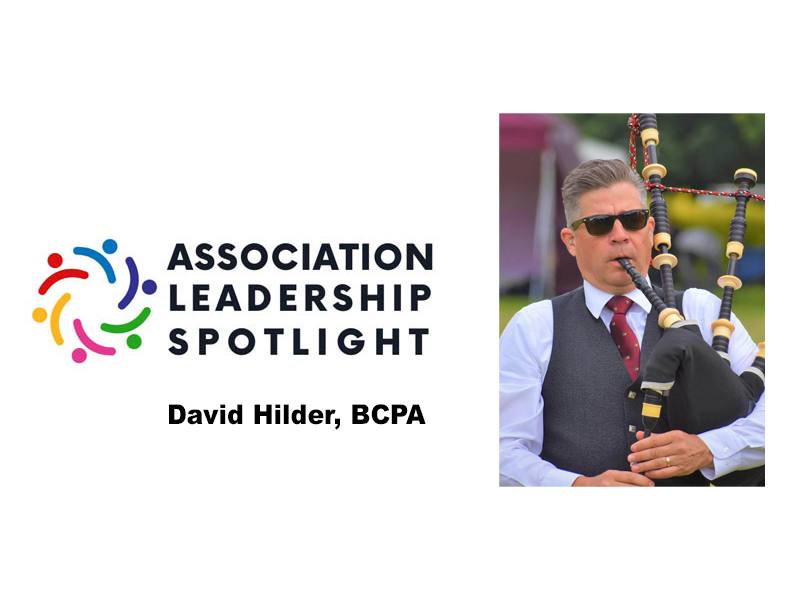
NO COMMENTS YET